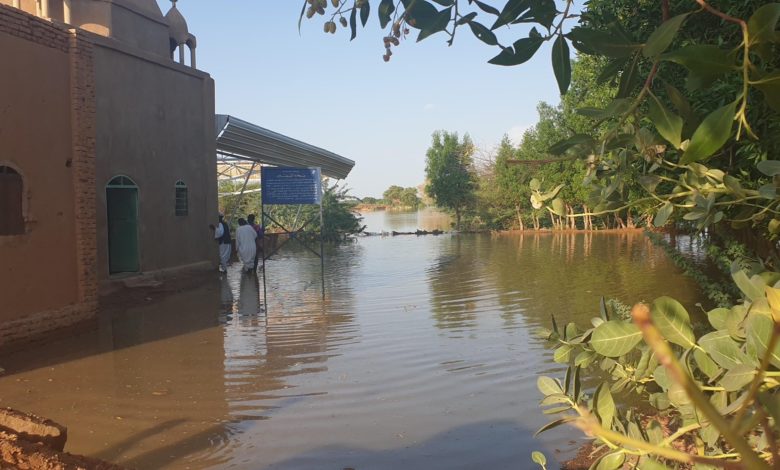Sudan Battles Worst Floods In One Century

Torrential rainfall, mostly in Ethiopia, has caused the River Nile to overflow downstream in Sudan causing flooding that has killed dozens of people and destroyed homes in 17 states and the capital, Khartoum.
The Nile rose about 17.5m late in August, the highest level it has reached in about a century, according to authorities.
The Sudanese Ministry of Interior Affairs reported that the flooding killed 114 people and destroyed at least 32,964 houses completely and 50,552 houses partially collapsed.
On Monday, the country’s permanent delegation at the United Nations (UN) in Geneva launched an emergency appeal for flood relief.
Sudanese Permanent Deputy in Geneva, Ali Ben Abi Taleb Abderrahman, met with officials from the International Federation of the Red Cross and Red Crescent (IFRC), the Office for Coordination of Humanitarian Affairs (OCHA) and the Swiss Red Cross.
Abderrahman announced that IFRC was donating 500,000 dollars in response to the humanitarian crisis, while the Swiss Red Cross also decided to back the humanitarian effort to ease the catastrophic impact of flooding in coordination with the Sudanese Red Cross.
Similarly, Omar Qamareddine, Sudan’s Foreign Minister requested for additional support on Monday, he raised concerns about the status of health care.
Qamareddine was quoted by local media as saying: “The health situation in Sudan wasn’t at its best anyway, and it is becoming more and more challenging.
The World Health Organisation (WHO) is providing surgical medicines and supplies, cholera medicines, and other essential medicines and supplies to affected communities.
WHO stated on its website that “Almost 30 health facilities were reportedly damaged as a result of the floods, although there has been no major interruption to their services.
“However, Sudan’s health system continues to suffer from years of underfunding, staff shortages, weakened infrastructure and the lack of equipment, essential medicines and supplies.”
” Medical supplies in the country are estimated at about 25 per cent of actual needs, and shortages have significantly increased over the past few months” WHO added.
OCHA last week warned that the situation could deteriorate over the coming days as heavy rains forecast in Ethiopia and several parts of Sudan would likely cause a further increase of water levels in the Blue Nile, leading to more flooding and destruction.
Support Our Journalism
There are millions of ordinary people affected by conflict in Africa whose stories are missing in the mainstream media. HumAngle is determined to tell those challenging and under-reported stories, hoping that the people impacted by these conflicts will find the safety and security they deserve.
To ensure that we continue to provide public service coverage, we have a small favour to ask you. We want you to be part of our journalistic endeavour by contributing a token to us.
Your donation will further promote a robust, free, and independent media.
Donate HereStay Closer To The Stories That Matter




